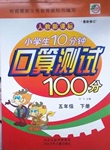题目内容
Born in a fishing village in Japan, Fujiyama, 25, recalls a childhood dominated by health concerns. Doctors told his parents that he had a hole in his heart and “they didn’t think I had a lot longer to live”. But during a later visit to the doctor, his family learned the hole had closed. “Somehow I was cured and I became a normal kid,” Fujiyama says. “And I had a second chance.”
During his second year at the University of Mary Washington, he volunteered in Honduras with a campus group and was struck by the extreme poverty he saw—barefoot children collecting cans and sleeping in the streets. Fujiyama realized he could help give other children their own second chance.
Today, his organization, Students Helping Honduras, brings education and community projects to children and families in need.
He started by telling his friends about his experience and collecting spare change at his two campus jobs. “When I had my very first meeting, only two people showed up,” he says. “I knew I had to keep fighting.” He persuaded his younger sister, Cosmo, to join the cause. “She’s dynamite,.” He says. “When she talks in front of a crowd, she can move mountains. Knowing that she was behind it, I knew I could do anything.” Since 2006, the siblings’ organization has grown to 25 campuses and raised more than $750,000 to fund projects, including the construction of two schools and the establishment of scholarships to help young women attend college.
Fujiyama says students are deeply committed to the organization. They raise money and then travel to Honduras to help building houses. While Fujiyama spends his summers in Honduras working alongside volunteers, he spends a large portion of the year on the road visiting colleges to raise funds. Cosmo Fujiyama, 23, lives in Honduras full time to coordinate(协调)the group’s building efforts on the ground.
Students Helping Honduras is working with community members of Siete de Abril to build a new village. Many of the families lost their belongings in Hurricane Mitch in 1998. A lot of them didn’t have access to clean water or health care, and they didn’t have a school. Fujiyama’s group helped build 44 homes in the village named “Sunshine Village”. The organization is also raising funds to build a water tower, an eco-friendly sanitation system and a library.
- 1.
At the beginning of his organization, ________.
- A.Fujiyama was supported by many friends
- B.things didn’t go on smoothly
- C.Fujiyama had little idea of Honduras
- D.many famous people joined in
- A.
- 2.
We can infer that Fujiyama is a _______ man.
- A.diligent
- B.mean
- C.sympathetic
- D.cheerful
- A.
- 3.
The underlined word “siblings’ ” can be replaced by __________.
- A.brothers’
- B.brother and sister’s
- C.friends’
- D.couple’s
- A.
- 4.
Which of the following is the best title for the passage?
- A.Help the people in need
- B.Students lend a hand in America
- C.Fujiyama helps build “Sunshine Village”
- D.Fujiyama gives poor people in Honduras a second chance
- A.
BCBD
文章大意:本文为记叙文,讲述了青年志愿者Fujiyama在Honduras筹款助学、帮穷济困的故事。
1.B: 细节理解题。根据第四段中的“When I had my very first meeting, only two people showed up”可知,在他事业的初期,事情进展得并不顺利。
2.C:推理判断题。综观全文内容可知Fujiyama是一个富有同情心的人
3.B 词义猜测题。根据前文可知这个志愿者组织是由他们兄妹创办的,故siblings’ 指的是“兄妹的”的意思
4.D主旨大意题。本文主要介绍了青年志愿者Fujiyama帮助Honduras的人们,给予他们第二次生活机会的故事,故D项最佳。A项和B项标题过大,针对性不强。C项是文中的一个细节,不具有概括性
文章大意:本文为记叙文,讲述了青年志愿者Fujiyama在Honduras筹款助学、帮穷济困的故事。
1.B: 细节理解题。根据第四段中的“When I had my very first meeting, only two people showed up”可知,在他事业的初期,事情进展得并不顺利。
2.C:推理判断题。综观全文内容可知Fujiyama是一个富有同情心的人
3.B 词义猜测题。根据前文可知这个志愿者组织是由他们兄妹创办的,故siblings’ 指的是“兄妹的”的意思
4.D主旨大意题。本文主要介绍了青年志愿者Fujiyama帮助Honduras的人们,给予他们第二次生活机会的故事,故D项最佳。A项和B项标题过大,针对性不强。C项是文中的一个细节,不具有概括性

练习册系列答案
 小学生10分钟口算测试100分系列答案
小学生10分钟口算测试100分系列答案
相关题目
Jack was born in a small village and _________ in a poor family.
| A.brought up | B.turned up | C.taken up | D.come up |